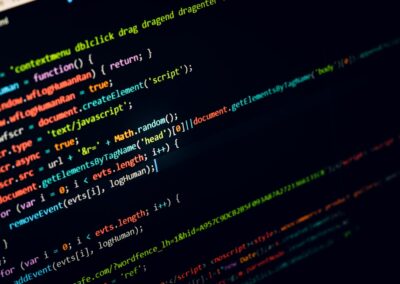Strategies for Enhancing Online Security
Understanding the Threats to Privacy on Social Media
Protecting privacy on social media is increasingly important as cyber threats like phishing scams and social engineering attacks become more sophisticated. In Saudi Arabia and the UAE, where social media usage is widespread, ensuring users are aware of these threats is essential for maintaining online security. Phishing scams typically involve attackers impersonating legitimate organizations to steal personal information, while social engineering attacks manipulate individuals into divulging confidential data.
Phishing scams often arrive in the form of emails or messages that appear to be from trusted sources, such as banks or social media platforms. These messages typically contain links or attachments that, when clicked, lead to fraudulent websites designed to capture login credentials or personal information. For business executives and mid-level managers in Riyadh and Dubai, understanding the mechanics of phishing scams is crucial for implementing effective countermeasures.
Social engineering attacks exploit human psychology to gain access to sensitive information. This can include tactics such as pretexting, where an attacker pretends to need information to confirm the identity of the person they are targeting, or baiting, where the attacker offers something enticing to trick the victim into providing personal information. By being aware of these tactics, users can better protect themselves from falling victim to these types of attacks.
Implementing Best Practices for Online Privacy
Implementing best practices for online privacy is vital for safeguarding personal information on social media. For users in Saudi Arabia and the UAE, adopting a proactive approach to online security can significantly reduce the risk of falling prey to phishing scams and social engineering attacks. One of the fundamental steps in protecting privacy on social media is to use strong, unique passwords for each account. This practice limits the potential damage if one account is compromised.
Enabling two-factor authentication (2FA) adds an extra layer of security by requiring a second form of verification in addition to the password. This could be a code sent to a mobile device or a biometric scan. For entrepreneurs and business leaders in Riyadh and Dubai, promoting the use of 2FA within their organizations can enhance overall security and protect sensitive corporate data shared on social media.
Regularly reviewing privacy settings on social media platforms is another crucial practice. Users should ensure their profiles are set to private, limiting the visibility of their personal information to trusted connections only. Additionally, being cautious about the information shared publicly can prevent attackers from gathering details that could be used in social engineering attacks. By adopting these best practices, users can create a safer online environment for themselves and their organizations.
Educating Users and Stakeholders on Cybersecurity
Educating users and stakeholders on cybersecurity is essential for promoting a culture of online safety. In Saudi Arabia and the UAE, where digital literacy is continuously improving, ongoing education on the latest cybersecurity threats and protection strategies is crucial. Organizations can play a significant role by providing regular training sessions and resources on identifying and avoiding phishing scams and social engineering attacks.
Training programs should cover various aspects of cybersecurity, including recognizing suspicious messages, verifying the authenticity of contacts, and safely handling requests for personal information. For business executives and mid-level managers, incorporating cybersecurity awareness into executive coaching and leadership development programs can ensure that all levels of the organization are equipped to handle cyber threats effectively.
Furthermore, encouraging open communication about cybersecurity can help identify potential vulnerabilities and address them promptly. Creating forums for employees and stakeholders to share their experiences and concerns regarding online security can foster a collaborative approach to protecting privacy on social media. In Riyadh and Dubai, where innovation and technology are key drivers of business success, maintaining a proactive stance on cybersecurity education is vital for safeguarding organizational and personal data.
Leveraging Technology for Enhanced Privacy Protection
Utilizing Advanced Security Tools
Utilizing advanced security tools is critical for enhancing privacy protection on social media. Modern technology offers various solutions designed to detect and prevent phishing scams and social engineering attacks. For businesses and individuals in Saudi Arabia and the UAE, adopting these tools can significantly improve online security.
AI-powered security tools can analyze patterns of behavior to identify potential phishing attempts and alert users before they fall victim. These tools can also filter out suspicious emails and messages, reducing the likelihood of exposure to malicious content. In addition, blockchain technology can provide secure ways to verify identities and protect data integrity, making it harder for attackers to manipulate information or impersonate legitimate entities.
Another effective tool is browser extensions that warn users about phishing websites. These extensions can compare visited sites against known phishing databases and block access to malicious sites. By incorporating such tools into their cybersecurity strategies, organizations in Riyadh and Dubai can enhance their defenses against online threats and protect their stakeholders’ privacy.
Encouraging Safe Social Media Practices
Encouraging safe social media practices is essential for mitigating the risks associated with online interactions. For users in Saudi Arabia and the UAE, adopting habits that prioritize security can prevent many common cyber threats. One important practice is to avoid clicking on links or downloading attachments from unknown sources. Instead, users should verify the legitimacy of messages through official channels before taking any action.
Another key practice is to be cautious about accepting connection requests or friend requests from unknown individuals. Cyber attackers often create fake profiles to gain access to personal information and launch social engineering attacks. By limiting social media connections to trusted individuals, users can reduce their exposure to potential threats.
Regularly monitoring account activity is also crucial for detecting any unauthorized access early. Users should check for unfamiliar login attempts or changes to account settings and report suspicious activity to the platform’s security team. For business leaders in Riyadh and Dubai, promoting these safe social media practices within their organizations can help create a secure digital environment and protect both personal and corporate data.
Staying Informed About Emerging Threats
Staying informed about emerging threats is vital for maintaining effective data protection on social media. Cybersecurity is an ever-evolving field, with new techniques and tools being developed by both attackers and defenders. For individuals and organizations in Saudi Arabia and the UAE, keeping up-to-date with the latest trends in cybersecurity can provide a significant advantage in protecting privacy.
Subscribing to cybersecurity news outlets, attending industry conferences, and participating in professional networks can provide valuable insights into new threats and the best practices for mitigating them. Additionally, organizations can benefit from regular consultations with cybersecurity experts who can offer tailored advice and strategies for enhancing security measures.
By staying informed and proactive, users can better anticipate potential threats and take appropriate actions to safeguard their data. In the dynamic business environments of Riyadh and Dubai, maintaining a keen awareness of cybersecurity developments is crucial for protecting personal and organizational information from online threats.
Conclusion: Achieving Robust Privacy Protection on Social Media
Protecting privacy on social media requires a comprehensive approach that includes awareness, education, and the use of advanced technologies. By understanding the threats posed by phishing scams and social engineering attacks, individuals and organizations in Saudi Arabia and the UAE can take proactive steps to safeguard their data.
Implementing best practices for online privacy, educating users and stakeholders, and leveraging modern security tools are essential strategies for enhancing data protection. By fostering a culture of cybersecurity awareness and staying informed about emerging threats, businesses and individuals can create a secure online environment that protects their privacy and promotes trust in digital interactions.
—
#ProtectingPrivacyOnSocialMedia, #PhishingScams, #SocialEngineering, #DataSecurity, #Cybersecurity, #OnlineSafety, #ArtificialIntelligence, #ModernTechnology, #ExecutiveCoaching, #BusinessSuccess, #LeadershipSkills, #ProjectManagement, #SaudiArabia, #UAE, #Riyadh, #Dubai























